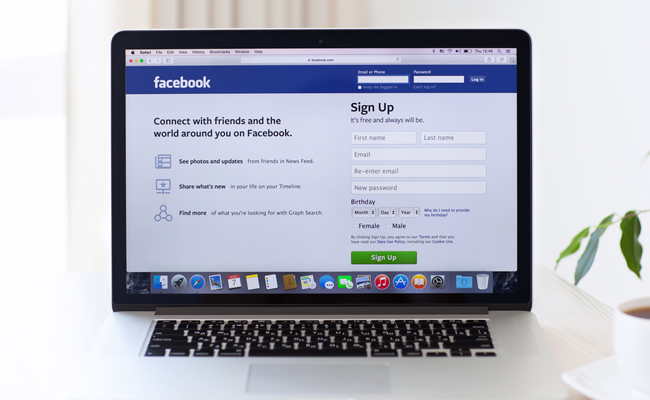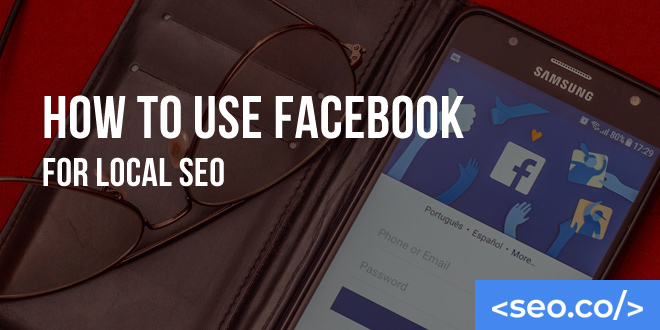Local SEO is growing in importance for several reasons. On a national level, SEO is becoming increasingly competitive, making it virtually impossible for local businesses to compete on such a scale. People are relying more on mobile devices to accomplish their search needs, and people use mobile devices for local searches more often than desktop devices. And thanks to the Pigeon update, it’s easier than ever for local businesses to get online visibility with the right strategy.
As a result, more businesses have been adopting local strategies that complement their ongoing SEO efforts. Many of these tactics are simple adjustments or enhancements to existing strategies, but they require extra effort to pull off.
One of the most important fronts for a successful local SEO campaign is your social media presence, especially Facebook, the most popular social platform in the world. Through Facebook, you can increase the visibility and domain authority of your business on a local level and earn more traffic flow and revenue to your business as a result.
Table of Contents
Feed Accurate Information
One of the biggest mistakes you can make in a local SEO campaign is having inconsistent information about your business on the web, most notably related to your name, address, and phone number (cumulatively referred to as your NAP information). When Google attempts to index information about a business, it collects pieces of information from all over the web, including your website, external directories, and even your Facebook profile.
If any piece of information about your business is inconsistent, even if it’s just an inconsistency in spelling or formatting, it could negatively affect your rank. Therefore, your first goal in executing a local SEO campaign through your Facebook page is filling out all your company information, as specific as possible and 100 percent in line with the information on your website. While you’re at it, it’s a good idea to check out and claim your other local profiles and ensure your information is accurate and up-to-date there, as well.
Grow a Following
One of the factors that Google incorporates in its ranking algorithm is the level of social following a brand has. While it’s not clear exactly how heavily this weighs in the ranking process, it’s clear that the larger your following is and the more active your following is, the better. Therefore, if you want to rank locally, you’ll need to take efforts to grow your following.

The best way to do this is to post high-quality, relevant, entertaining content on a regular and consistent basis. Respond to people when they comment on your posts, and encourage more people to converse directly with your brand. You can even reach out to people directly to make new connections; if you do, work locally. Local fans tend to be more active and engaged with brands from the same city or region.
Post Local-Specific Articles
If you’re engaging in a local SEO campaign, you need to be writing content based on your city or region. Depending on the nature of your business, it could be specific problems your city faces, specific industry players in your city, or just conditions that make your city unique in the industry. Whatever you do, make sure you include some geographic indicators in the title and body of your content, and post these articles regularly.
Once posted on your blog or website, syndicate them through Facebook. This will open your local posts to more visibility and more propensity to travel throughout the web. Every like, share, or comment your local-specific posts get will contribute positively toward your overall domain authority, and will increase your local relevance as well.
Showcase Local Events
Another content-based option to use for a Facebook-centered local SEO campaign involves taking advantage of local events. Whenever there’s a new event in your city, whether it’s business-oriented like a tradeshow or more fun like a county fair, try and get your business involved. Attend the event, take pictures, and get your name out there. Not only will this get some real-world exposure for your brand, it will also provide some great fuel for local-specific Facebook updates.
People love to see pictures, especially if they are pictures from a hometown event. Seeing your brand will deepen the perceived relationship you have with your city, and Google will correspondingly view you with more local authority. Again, the more likes, shares, and comments you attract, the better.
Connect With Other Local Brands
This strategy is relatively simple, but it can have a powerful effect. You don’t necessarily have to go after competitors, but any local brands peripherally related to your industry can be helpful. Building relationships with other local brands not only deepens your connection to your city or region, it also opens the door to an entire other realm of followers for you to acquire.
The easiest way to start this relationship is to comment on a post the other brand made, or share one of their articles on your Facebook feed. More than likely, they’ll respond to your comment or return the favor by sharing some of your content. Eventually, you’ll build an ongoing mutual relationship that works out positively for both of you.
Cultivate Positive Reviews
Facebook is also a great tool you can use to cultivate positive reviews. The more positive reviews you have on offsite directories like Yelp, the higher you’re going to rank for local searches. However, it’s explicitly forbidden to buy or directly influence people to post positive reviews about you. All you can really do is let people know where they can review you if they so choose.
Still, Facebook is a perfect platform to make it happen. Post links to your local directory profiles occasionally, reminding people who haven’t yet reviewed you to do so. When people post on your feed about a positive or negative experience, follow up with them and try to make their experience better, then point them in the direction of an external review site. These small steps can lead to far more local reviews, which will earn you prime spots in the local SERPs.
A Note on Paid Advertising
While part of Facebook’s marketing appeal is the fact that it’s free, Facebook’s paid advertising platform can be handy for local marketers, especially those just starting out. Your budget can be as low as $5 a day, you can cancel at any time, and you can refine your audience to a very narrow demographic, including restricting your audience to a geographic area. A few weeks of post-boosting and advertising could jump-start your campaign with a few hundred followers, as long as you have the budget for it. And if it works out well, you can analyze the ROI and step up the budget if it makes sense. Otherwise, local SEO success can be achieved solely through committed, hard work.
Local SEO, like its national counterpart, takes time and consistency before its eventual payoff. You could implement these strategies effectively and consistently on Facebook for months before you start to see a noticeable rise, but if you’re committed to giving your customers a great experience, and the rest of your local strategies are in order, you’ll have a clear path to the top of the SERPs. Measure your progress regularly with Google Analytics and evaluate the quality of your posts by reviewing user reception—the more likes, shares, and comments your posts attract, the better you’re doing. Make adjustments that favor the successful elements of your strategy, and don’t be afraid to cut something out if it isn’t working for you.



